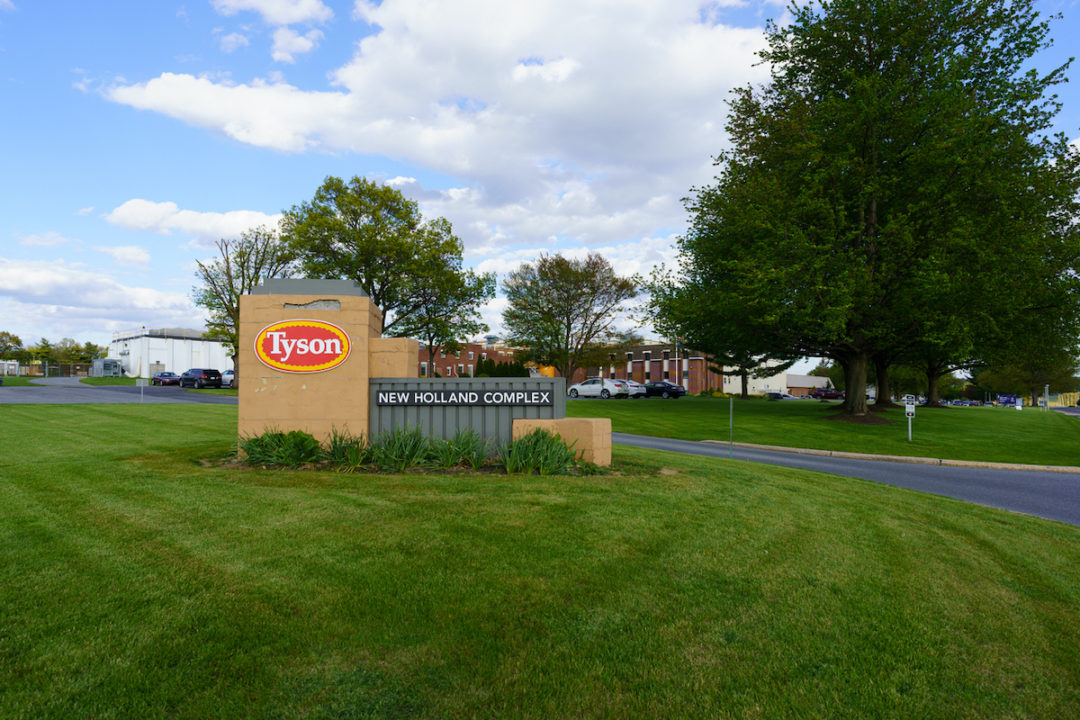
Visit Our Sponsors |
|
|
|
|
|
|
|
|
|
|
|
|
|
|
|
|
|
|
|
|
|
|
|
|
|
|
|
|
|
|
|
|
|
|
|
|
|
|
|
|
|
|
|
|
|
|
|
|
|
|
|
|
|
|
|
|
|
|
|
|
|
|
|
|
|
|
|
|

A new investigation found that meat processing company Tyson Foods dumped hundreds of millions of pounds of toxic pollution into U.S. waterways over a five year period.
According to data from environmental nonprofit Union of Concerned Scientists (UCS) released on April 30, 41 Tyson slaughterhouses and processing plants released roughly 371 million pounds of chemicals such as nitrogen, phosphorous, chloride, oil, and cyanide into rivers and lakes between 2018 and 2022. The toxic waste was found in 17 states, with more than half concentrated in Nebraska, Illinois and Missouri.
Read More: New EPA Rule Will Force Hundreds of Chemical Plants to Slash Toxic Emissions
The UCS warns that pollutants from Tyson facilities like chloride, sulfate, and dissolved solids can contaminate drinking water. Chlorides are known to be corrosive to water pipes in large enough quantities, while sulfates can lead to gastro-intestinal issues in humans. Waters contaminated by mass amounts of nitrogen and phosphorous can also lead to algal blooms that can clog pipes, kill aquatic life, and even release carbon dioxide when the algae dies and decomposes.
Tyson Foods is the second largest chicken, beef, and pork processor in the world. In 2018, the U.S. Department of Justice (DOJ) ordered the company to pay a $2 million criminal fine for violations of the Clean Water Act (CWA) in Missouri. According to the DOJ, 108,000 fish were killed after a tank used to store a liquid food supplement sprung a leak, spilling it into sewers and a municipal wastewater treatment plant. That was one of several other CWA violations Tyson has been fined for over the last two decades.
In 2023, the Environmental Protection Agency also proposed new standards for wastewater discharged by meat and poultry processing facilities. The EPA's proposal would look to cut nitrogen, phosphorous, and other pollutants in U.S. waters by 100 million pounds per year. The most recent public hearings for the updated standards were held in March.
The meat producing industry in the U.S. suffered enormous strain during the COVID-19 pandemic, highlighting the concentration of production among a handful of companies, including Tyson. In an interview with The Economist May 2, 2020, Chris Leonard, author of a book that traces the rise of Tyson Foods to dominate the chicken industry, said the U.S. meat industry as a whole is unhealthily consolidated, in the hands of a few large firms.
Read More: DoL Photos Show Children Illegally Working in U.S. Slaughterhouse
According to the Livestock, Environment and Development (LEAD) Initiative, an international consortium of government and private agencies based at the United Nations Food and Agricultural Organization headquarters in Rome, the global livestock industry uses dwindling supplies of freshwater, destroys forests and grasslands, and causes soil erosion, while pollution and the runoff of fertilizer and animal waste create dead zones in coastal areas and smother coral reefs. There also is concern over increased antibiotic resistance, since livestock accounts for 50% of antibiotic use globally, according to LEAD.
RELATED CONTENT
RELATED VIDEOS
Timely, incisive articles delivered directly to your inbox.

